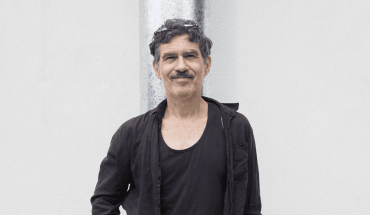work makes accidents more likely, increases stress levels and even causes physical pain. The problem is that many people simply not can afford not to do it.
According to the latest statistics of the International Labour Organization, more than 400 million people employed worldwide work 49 hours or more per week, a considerable proportion of the total of about 1,800 million people employed in all the world.
In a recent interview with The New York Times, even the entrepreneur Elon Musk felt moved to describe his birthday number 47, which became locked in his factory, in sailing through the night.
“Went it without friends or anything”, he said. His birthday was like any other day, in another work week 120 hours. “This (the company) really has come along at the expense of not seeing my children or my friends”, added.
For some of their fans, this is only the price of being the current demigod of Silicon Valley, the pioneer of an industry that it simultaneously pursues the colonization of Mars and the creation of an affordable and mass-produced electric car.
But use exhaustion as a badge of honor sets a dangerous precedent.
“Long hours” the hustle and bustle during long working hours (coming to include weekends) has become a staple of the culture start-up in Silicon Valley, and has spread to many other parts of the world.
While writing this article, a publication appeared in my Facebook of a Colombian group for business start up: “raise your hand if you’re working right now on your business, idea or business!”, said the publication, which was accompanied by a handful of emoticons.
He had 160 “likes”, even some hearts. It was commented on by 38 enorgullecidos entrepreneurs, each one of which published the URL of your project.
Getty ImagesEn 2016 a study found that levels of cortisol in people “on call” from home soar with greater ease than those who do not have the obligation to be available. This happened one Saturday at 9:56 pm.
And the problem is that this culture of “long hours” probably nullifies the purpose of doing more things, or at least implies a high price for doing them.
There is enough evidence of that work overtime to reduce our productivity and makes us feel and be less healthy. It also makes us more likely to develop a wide range of diseases.
Even so, millions of workers seem to be incapable of fighting against this reality.
What happens then? And what can make us – that we cannot escape to work on Saturday in the evening – to fix it?
This is going to hurt seems obvious: one person overworked tired. Therefore, it is more likely to have an accident at work.
But try this is surprisingly difficult. It may be that the riskiest jobs also have more demanding hours, or that people who work more hours simply spend more time at risk, even if not do overtime.
But a study which analyzed records of employment in the United States for 13 years found that “work in jobs with schedules of hours extra is associated with a rate of risk of injury 61% higher in comparison with the jobs without hours extra”.
This study does not say that fatigue is the main cause of this increased risk, but there is insufficient evidence to suggest that it might be the case.
For example, if we wake up at 8 in the morning but are still awake at 1 a. m. the next day (i.e., if we worked for 17 hours), our physical performance will probably be worse than if we had a concentration of alcohol in the blood of 0.05%.
This is the level that would get an average male, 73 kg weight of person, if I had drank two cans of 355 milliliters of beer. That would say that we are drunk when we work extra hours.
If we stay awake until 5 am, deterioration would be akin to having a 0.1% of alcohol in the blood, more than 0,08% which is considered the legal limit for driving in most of the countries of the world.
Therefore, when driving at night our physical (things like the time of reaction or coordination) will affect performance as if we were too drunk to drive.
Getty ImagesMás of 400 million people around the world work 49 or more hours a week, according to the international organization of the Trabajo.Y if we don’t drive, can work safely and competently?
Perhaps writing on a computer is not very risky, but this is something that is definitely worth considering when you make manual or physical labor, or if our work requires attention to detail.
The algorithmic whip however, many people feel trapped in this cycle: rely on excess work to make ends meet and pay your bills.
They are trapped in a system that encourages them to work longer hours or do it all night if your customers live in another time zone.
For example, this is often the case for workers from the so-called collaborative economy in Southeast Asia and Africa, hired by companies or entrepreneurs in the United States, United Kingdom or Europe through freelance platforms to perform tasks such as coding, blog publishing, creating websites or social network management.
Some recent research led by Alex j. Wood, of the Oxford Internet Institute, reveal that algorithms that assign jobs to these workers are a powerful driving force behind overwork.
Basically, the higher its ranking on these platforms, more likely may be hired.
And to achieve this, the workers have to adapt to whatever their bosses want, with little room to negotiate better conditions.
“They should be available to communicate when they are needed. And if their bosses assigned a project with a short deadline, they will accept. Otherwise, will be given a bad grade “, Wood said in an interview.
If the worker is not in the first places in the ranking, the pressure increases. Some workers are trying to attract more job opportunities by charging extremely low prices, which forces them to work long hours for little money.
In addition, most work a significant amount of unpaid hours.
As an interviewee in the research of Wood said: “I’m in bankruptcy. This employer will pay me money, so why don’t you accept work 18 hours a day? “.”
These patterns seem to be replicated in many areas of collaborative economics.
There have been reports in the United States that some drivers working for transportation companies are handling during shifts of up to 20 hours to take advantage of the higher fee schedules.
Getty ImagesDespués of a parliamentary inquiry, United Kingdom made über limiting their drivers hours to 10 hours. And in the United Kingdom, über limited their drivers to 10 hours of continuous use of the application, after a parliamentary inquiry.
According to Wood, “the most obvious impact is lack of sleep”, that reinforces the vicious circle of little rest and long hours.
“People would be more productive if they had these long hours.” But the way in which businesses are configured means they may not maximize this productivity because they have to work until late at night to meet what is asked ‘. ”
Freelance platforms have been criticized for glorifying these unhealthy lifestyles. And for good reason.
The study of Wood does not show how many workers of collaborative economics really work for long hours and the researcher clarifies that the stage is usually better for freelancers in Europe, United Kingdom and United States, where these people have more specialized skills and much more bargaining power.
Still, there are signs that this cycle of overwork is taking root in the global South call.
More than half of the workers interviewed by Wood and his team said that they had to work at a very high speed, 60% working with tight deadlines and 22% experienced physical pain as a result of their work.
Always “on call” the epoch in which people finished work as soon as they came out of his office ended.
Check and reply to messages from work seems inevitable and even be desirable for some people, since they believe that he helps them overcome their competitors or spend more time with the family without withdraw completely from their work.
Mobile technology “increases expectations: managers and colleagues expect that the staff is almost always available for work”, says a document academic researcher Ian Towers, SRH University Berlin 2006.
Getty ImagesUn study of 13 years to records of employment in the United States found that “work in jobs that require overtime is associated with a risk of injury from 61% rate”. But being “on call” is not the same as that being out of work, and the way in which our body reacts to both situations is very different.
2016 study found that levels of cortisol (a hormone that influences the increase in stress levels) of people who are “on call” increase faster in the morning than from those that are not required to be available , even if you don’t end up working that day.
This hormone usually has its highest concentration when we wake up, and decreases during the rest of the day.
But scientists believe that daily stress factors alter your cycle in several ways.
This hormone increases faster when the person expected a dayto stressful, their levels remain high if you have chronic stress, and does not increase if you are going through a “syndrome of exhaustion”, something that is usually preceded by a period of chronic stress.
As a result, people find it harder to discern between what is work and what is it when they are “on call” from home, as well as choose the activities that really long, a trait that researchers call “control”.
In other words, workers do not feel that they are free when you touch them to be “on call” and, as a consequence, increase their stress levels.
Therefore, the researchers conclude that day that requires a worker to be available “cannot be considered leisure time, because the recovery–a crucial function of leisure time – is limited in such circumstances”.
What do?
Working for whole days is not smart, even if you’re Elon Musk.
The news of their unhealthy work routine has not been well received by investors, and the shares of Tesla fell 8.8% shortly after the interview in The New York Times, amid suspicions that Musk mental health may be affected.
Getty Images do the moral? If you can avoid the extra hours of work, just do it, because they are in game, your health, your well-being and your productivity.
Even if you think you are an exception, chances are that you’re not.
The hardest in this regard are the most vulnerable freelancers, that does not appear to have the opportunity to stop the cycle of overwork because of their weak bargaining power.
And it is unlikely that the platforms from which they are employed move to change this, especially when this business model allows them to move billions of dollars each year.
Meanwhile, if by chance hire a freelancer online, it might be better to give them a bit of free time: they would not only be able to do a better job, but that his quality of life would also be better.
Read the original release in English now you can receive notifications of BBC News World. Download the new version of our app and activate them so you don’t miss our best content.
translated from Spanish: The real effects (for your health and your productivity) of working many hours a day
October 11, 2018 |





